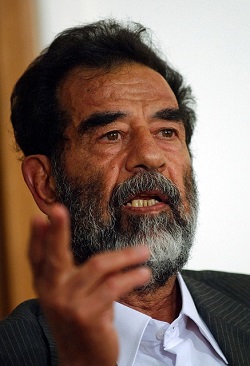 photo credit: pixabay.com
photo credit: pixabay.com
Does no one even try to vet this guy’s speeches? I look at these few sentences and I’m overwhelmed by their utter stupidity. It’s hard to know where to begin in addressing the outrageous, contemptuous, and indeed (one could say) traitorous ideas in this short quotation. But before I embark on that task, let me remind you that the above quotation is not an isolated incident. Trump has been saying such things since last October as part of his campaign but has maintained this general idea for over a decade. I guess you could say that it’s one issue on which he’s been consistent. (He also has had fond words for Muammar Gaddafi. Ah, the murderous regimes of yesteryear!)
Now for an attempt to point out the obvious:
1. The main reason why we went to war in Iraq was because we (whoever one might mean by “we”–George W. Bush, Colin Powell, George Tenet, Condoleeza Rice) believed that Saddam had aided terrorists, in particular the Al Quaeda operatives who carried out the 9/11 attacks.
2. Saddam Hussein brutally quashed dissent, of any form, from any group, so if he thought a terrorist organization threatened his regime he certainly did kill them. Without due process. (I thought Americans believed in due process? Guess not, given the cheers that greeted his statements in NC.) But what Trump doesn’t seem to know is that Saddam was perfectly willing to support terrorists if they fit into his agenda. There is evidence of his support for anti-Turkey terrorist groups and also for Palestinian terrorists who targeted Israel. The most specific reference I have been able to find is to the “notorious Palestinian assassin Abu Nidal, whose Iraqi-armed group carried out deadly attacks against Israelis, rival Palestinians and Syrians opposed by Saddam” (PBS Newshour, July 6). But Nidal died in 2002 under murky circumstances; the theory is that he may have crossed Saddam in some way. It was, as Trump would say, over.
So what other murderous thugs would Trump think had some good points? Who might our military be sent to support? It doesn’t bear thinking about, and it must not happen. Here’s the question for everyone who thinks that Trump isn’t so bad: How can you vote for someone who has good things to say about a mass murderer?
